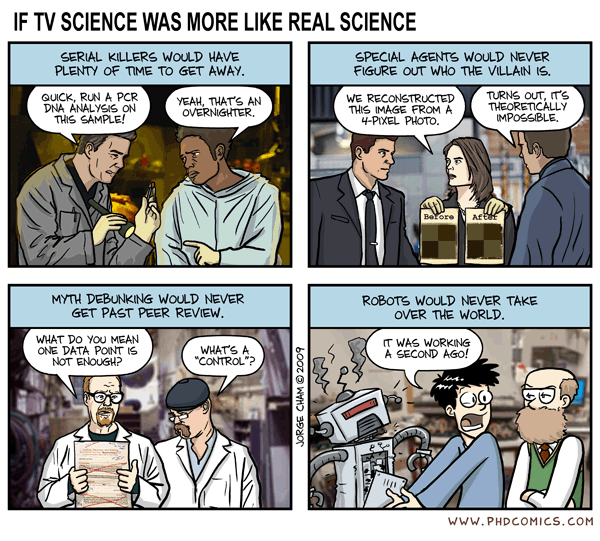
- Home
- Angry by Choice
- Catalogue of Organisms
- Chinleana
- Doc Madhattan
- Games with Words
- Genomics, Medicine, and Pseudoscience
- History of Geology
- Moss Plants and More
- Pleiotropy
- Plektix
- RRResearch
- Skeptic Wonder
- The Culture of Chemistry
- The Curious Wavefunction
- The Phytophactor
- The View from a Microbiologist
- Variety of Life
Field of Science
-
-
Change of address7 months ago in Variety of Life
-
Change of address7 months ago in Catalogue of Organisms
-
-
Earth Day: Pogo and our responsibility9 months ago in Doc Madhattan
-
What I Read 202410 months ago in Angry by Choice
-
I've moved to Substack. Come join me there.1 year ago in Genomics, Medicine, and Pseudoscience
-
-
-
-
Histological Evidence of Trauma in Dicynodont Tusks7 years ago in Chinleana
-
Posted: July 21, 2018 at 03:03PM7 years ago in Field Notes
-
Why doesn't all the GTA get taken up?7 years ago in RRResearch
-
-
Harnessing innate immunity to cure HIV9 years ago in Rule of 6ix
-
-
-
-
-
-
post doc job opportunity on ribosome biochemistry!11 years ago in Protein Evolution and Other Musings
-
Blogging Microbes- Communicating Microbiology to Netizens11 years ago in Memoirs of a Defective Brain
-
Re-Blog: June Was 6th Warmest Globally11 years ago in The View from a Microbiologist
-
-
-
The Lure of the Obscure? Guest Post by Frank Stahl13 years ago in Sex, Genes & Evolution
-
-
Lab Rat Moving House14 years ago in Life of a Lab Rat
-
Goodbye FoS, thanks for all the laughs14 years ago in Disease Prone
-
-
Slideshow of NASA's Stardust-NExT Mission Comet Tempel 1 Flyby15 years ago in The Large Picture Blog
-
in The Biology Files
Ant Navigation SNL-style
If you appreciated Saturday Night Live's Mother Lover, then this ode to ant navigation should be right up your alley, produced by student in Dave Barner's Developmental Psychology course at UCSD.
OK, the videos have nothing to do with each other, but both are worth watching.
OK, the videos have nothing to do with each other, but both are worth watching.
Lean Times come to the World's Richest University
Academia is traditionally a good place to wait out recessions. Not so much this year. Harvard has posted a list of cost-cutting measures. Notice in particular that the number of PhD students being admitted has been reduced (no word about masters or professional school students...but then masters and professional school students pay tuition).
Copyright and Science
I imagine the academic publishing industry is either hurting from or worried about digital theft, just like all other publishers. But some of the pressure is coming from other quarters.
As I've discussed on this blog before, academic publishing is a strange industry. Researchers need to publicize their research. Publishers need research to publish. So researchers give their work for free to publishers on the understanding the publishers will publicize the work. The publishers print and distribute the work and retain all the money.
Fundamentally, publishers need researchers since there is no other source of research. Researchers, on the other hand, don't need publishers, they need distribution. And with the advent of the Internet, it's no longer so clear that expensive printed journals are the best method.
I'm thinking about this as I listen to a task by Kenneth Crews called "Protecting your scholarship: copyrights, publication agreements, and open access." He is currently suggesting that we negotiate our publication agreements with journals. For instance, he argued that academic authors should not be transferring their copyrights to publishers, but rather license the copyright to the publishers. This way, the authors retain ownership of the work, which would eliminate strange transactions where authors have to get permission from the publisher to quote from their own work in a future book.
This would seem to suggest that we have some bargaining power. And, as open-access options become more prevalent, it seems that we should. Has anyone reading actually negotiated a publication agreement.
As I've discussed on this blog before, academic publishing is a strange industry. Researchers need to publicize their research. Publishers need research to publish. So researchers give their work for free to publishers on the understanding the publishers will publicize the work. The publishers print and distribute the work and retain all the money.
Fundamentally, publishers need researchers since there is no other source of research. Researchers, on the other hand, don't need publishers, they need distribution. And with the advent of the Internet, it's no longer so clear that expensive printed journals are the best method.
I'm thinking about this as I listen to a task by Kenneth Crews called "Protecting your scholarship: copyrights, publication agreements, and open access." He is currently suggesting that we negotiate our publication agreements with journals. For instance, he argued that academic authors should not be transferring their copyrights to publishers, but rather license the copyright to the publishers. This way, the authors retain ownership of the work, which would eliminate strange transactions where authors have to get permission from the publisher to quote from their own work in a future book.
This would seem to suggest that we have some bargaining power. And, as open-access options become more prevalent, it seems that we should. Has anyone reading actually negotiated a publication agreement.
Subscribe to:
Comments (Atom)
















